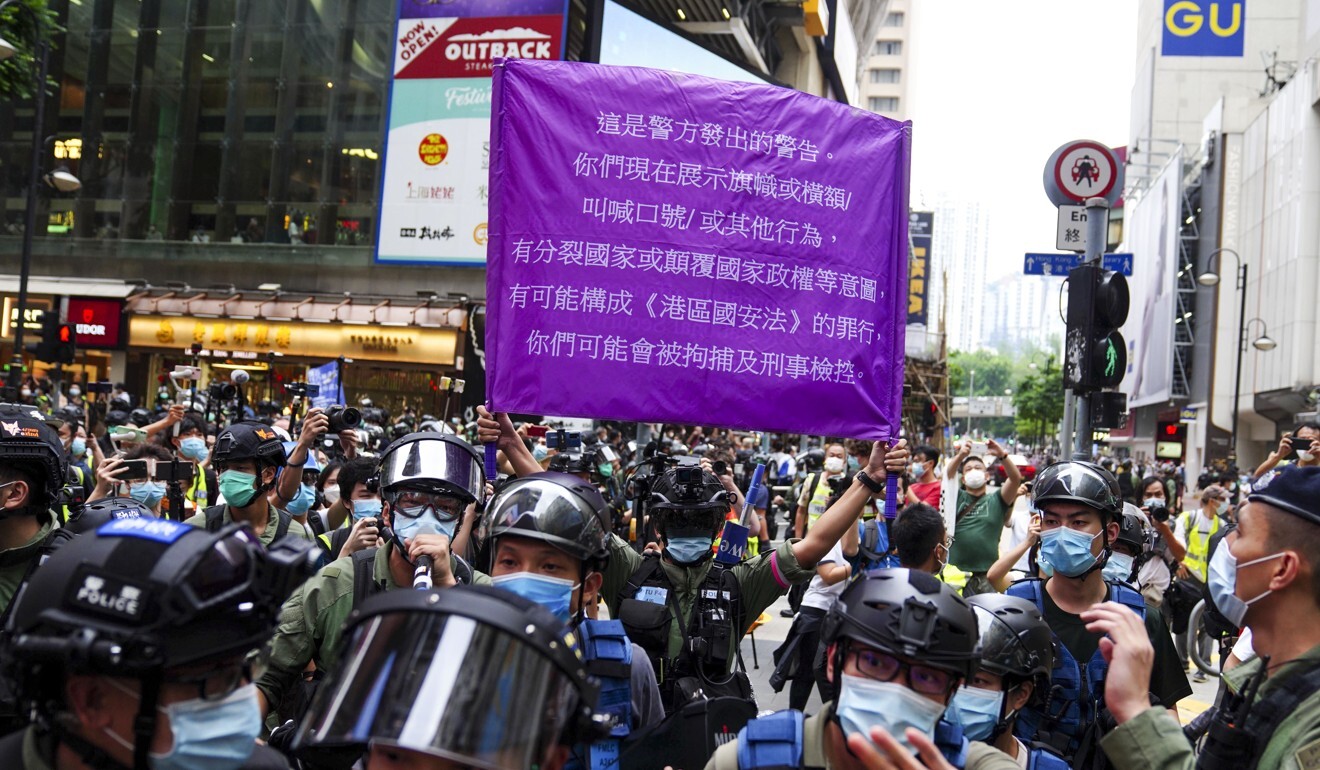
Hong Kong national security law: controversial police hotline receives more than 1,000 tips within hours of going live
- Residents can send information related to alleged violations of law via SMS, email and WeChat, the mainland’s most influential messaging app
- Opposition lawmakers have decried the move, saying it will create a chilling effect on political dialogue in the city
A police spokesman said that as of 6pm on Thursday, over 1,000 purported tips had already been received via the hotline.
“This hotline is solely for receiving national security-related intelligence such as information, photos, audio or video clips. The hotline will not give any replies or be answered,” the force wrote on its social media platform on Thursday.
The force also added the hashtags “#WeCanHelp”, “#YouCanHelp” and “#SaveHK” as it promoted the new hotline on Twitter.

Opposition lawmakers had decried the hotline plan, saying it would create a chilling effect on society and destroy interpersonal trust.
Mocking police for launching a “Cultural Revolution 2.0”, Democratic Party lawmaker Lam Cheuk-ting said he feared the new hotline would encourage infighting among citizens.
“Nowadays, Hongkongers already have the feeling that one can easily get blamed for whatever one does, and that one can easily step on a political landmine,” Lam said. “The hotline will only intensify the chilling effect in the society.”
A Post reporter who dialled the line on Thursday was asked to leave a message by an English-speaking operator.
Teenager arrested outside US consulate charged under national security law
The hotline on WeChat, however, was hit by technical issues on its first day.
Users can only send a message to the police’s hotline on the app after adding its account, but many encountered difficulty in doing so on Thursday afternoon, receiving messages that read “Too many attempts. Try again later.”
The hotline’s launch comes more than four months after the imposition of the sweeping national security law, which outlaws in broad terms acts of secession, subversion, terrorism and collusion with foreign and external forces, with offenders facing up to life imprisonment.
At least 22 men and six women have so far been arrested by the police force’s new national security unit, which is responsible for collecting intelligence, enforcing operations and investigating offences endangering national security.
Letters: Hong Kong’s national security law has killed democracy dream
According to police, personal details will not be collected through the new hotline. Any intelligence gathered would be processed in accordance with the Personal Data (Privacy) Ordinance and not be disclosed to third parties, they added.
More than 1.2 million pieces of information were gathered at the time.
A government source previously told the Post the launch of the national security hotline would create a deterrent effect for potential suspects as “there will be eyes and ears everywhere”.

